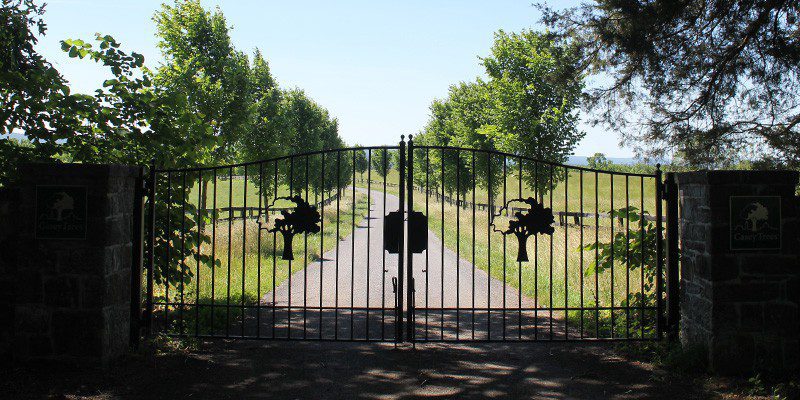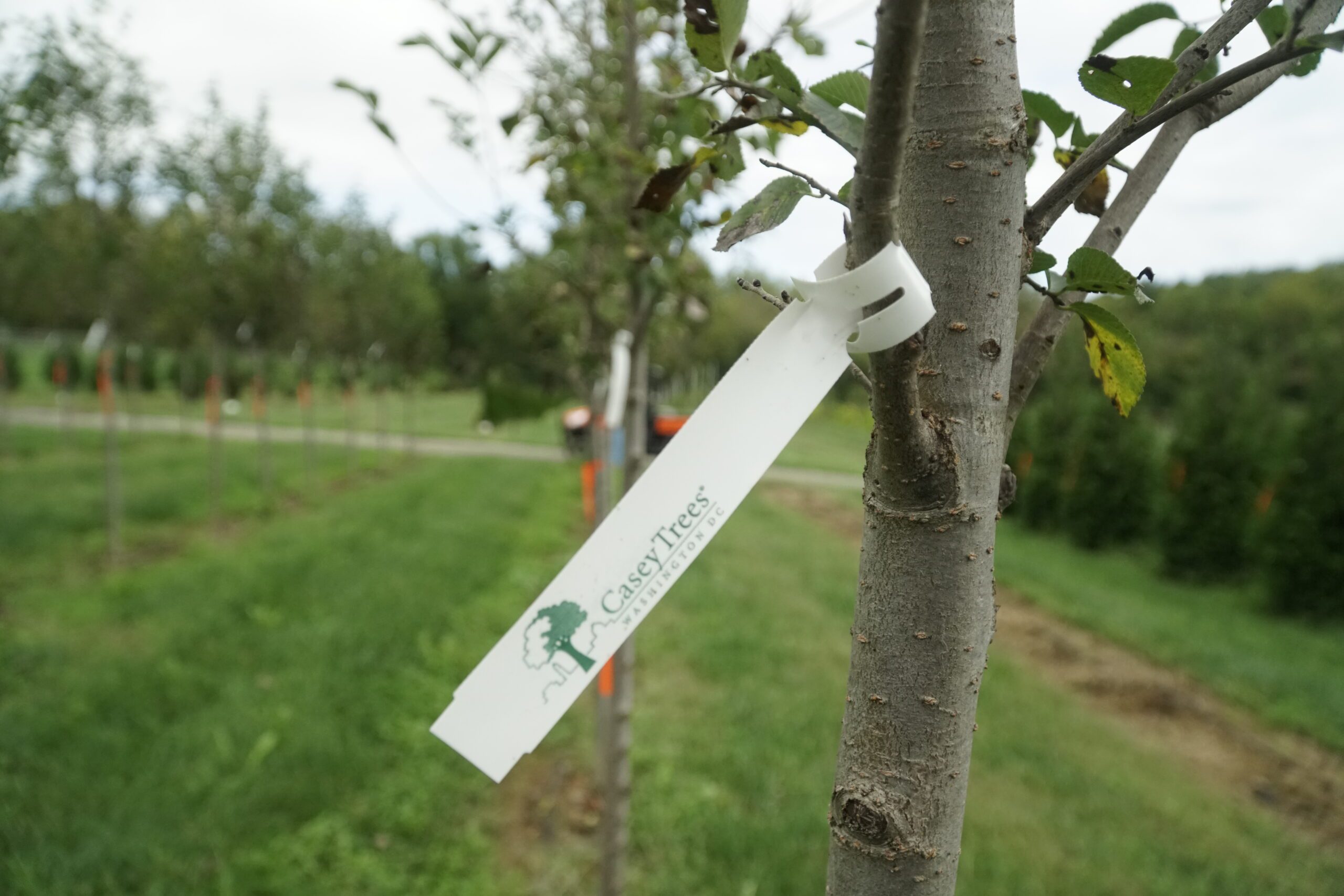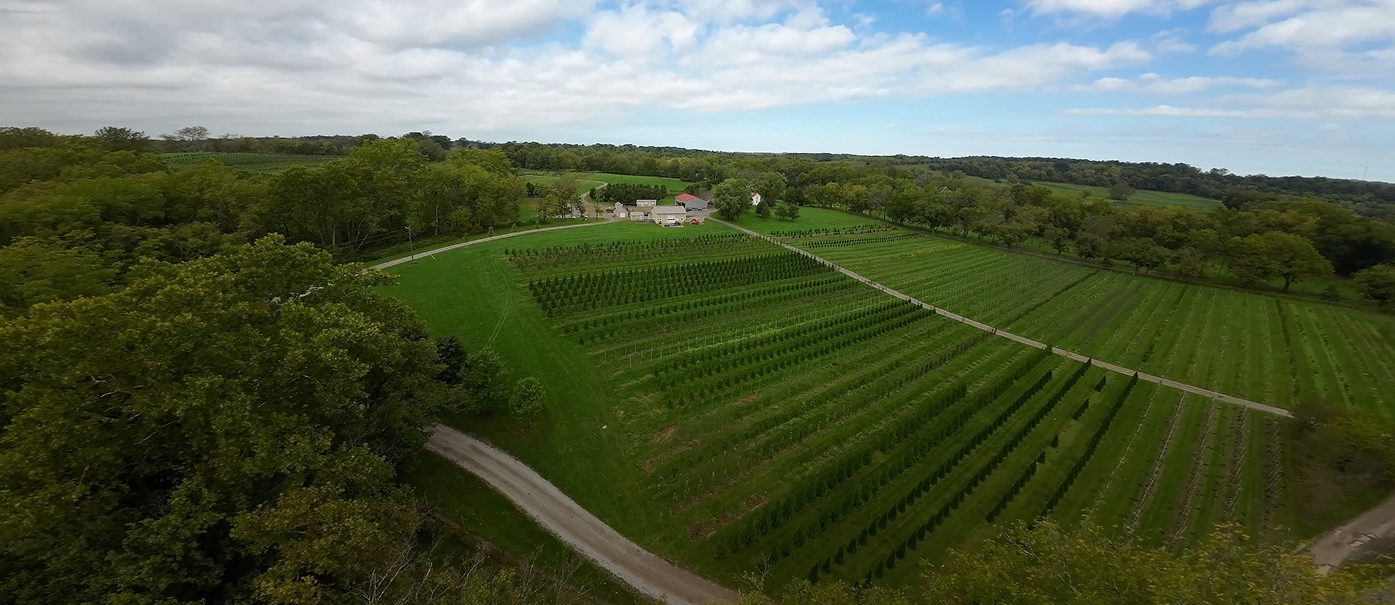Our Farm
The Casey Tree Farm, located in Berryville, Virginia (Clarke County, VA), spans 730 scenic acres along two miles of the Shenandoah River. Approximately 150 acres are dedicated to tree production and research, where more than 50,000 trees are grown and nearly 10,000 are harvested and shipped each year. As a nonprofit operation, the Casey Tree Farm is committed to sustainably producing high-quality trees that help communities and municipalities meet their tree canopy and conservation goals.
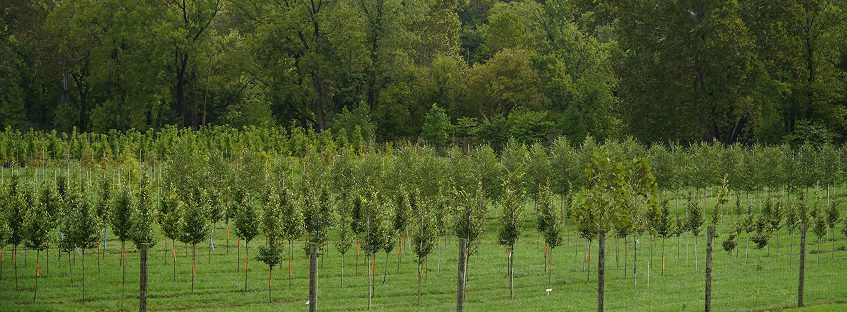
Trees We Grow
The trees in this guide are well adapted to the soil and conditions present in Washington, DC. We encourage you to plant medium and larger-sized trees, as they provide greater benefits to the city than smaller trees.
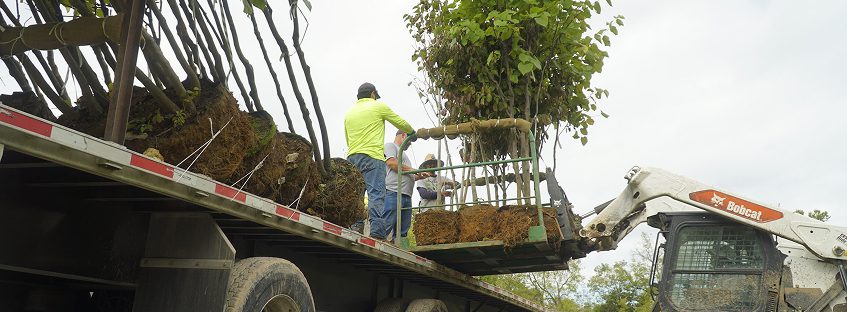
Availability & Requests
At Casey Tree Farm, we’re proud of our sustainably-grown trees – from ornamental cherries to towering sycamores – available for wholesale purchase. We are excited to work with you to re-tree your community and meet your canopy goals.
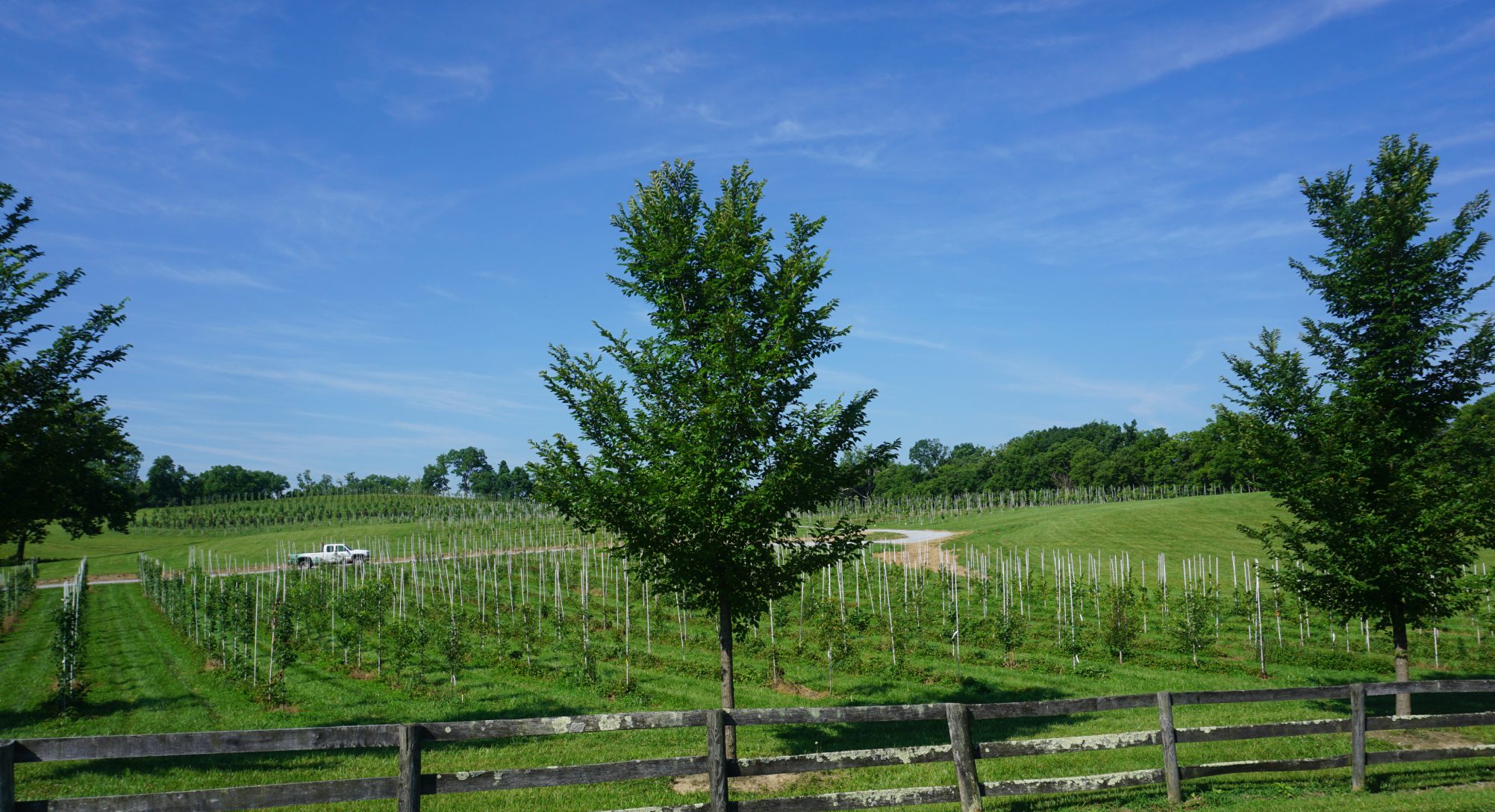
A FARM with a Mission
Our team at the Casey Tree Farm employs a combination of traditional practices and innovative techniques to cultivate robust and resilient trees that can thrive in the bustling environment of the nation’s capital.
In addition to the trees bound for the homes, schools, and parks of Washington, DC – the Casey Tree Farm is also nurturing over 50,000 trees, each carrying the promise of a greener future. These young saplings, although not yet mature enough to withstand the rigors of city life, are receiving the utmost care and attention at the farm. This meticulous approach not only enhances the trees’ survival rate but also contributes to the overall health and sustainability of the urban ecosystem once they are ready to be planted. With a focus on fostering healthy root systems, sturdy trunks, and vibrant foliage, our experts ensure that these trees are well-equipped to face the challenges of their eventual transplantation into the urban landscape.
The best thing about working at the Casey Tree Farm is knowing that the trees we grow here are making a greater impact when they leave the farm – that each tree is serving a greater purpose – and will not only live for decades, but hopefully centuries.
– Kyle Derr | Casey Tree Farm Director
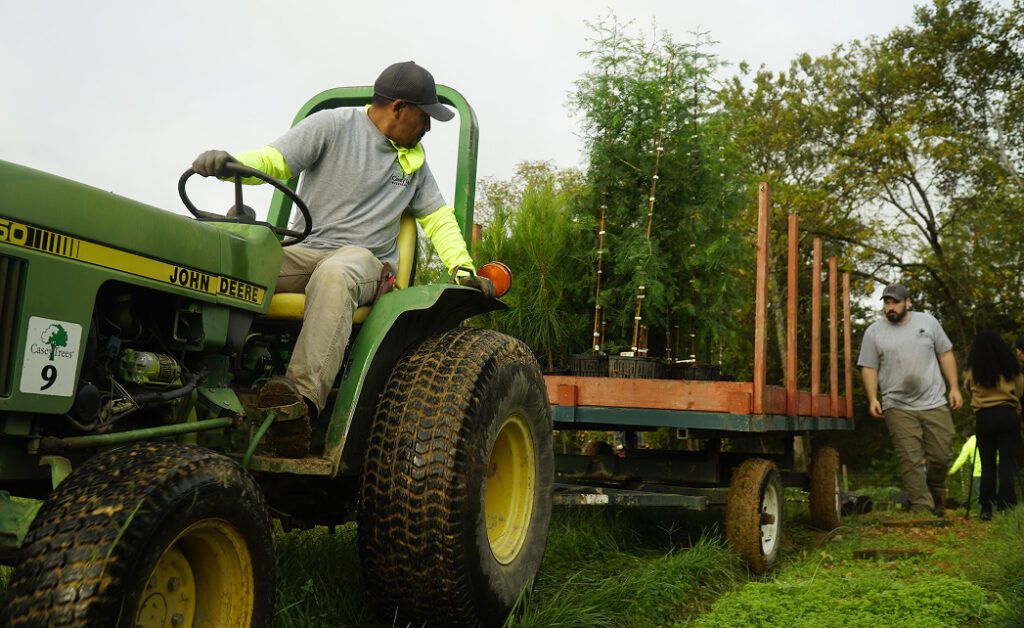
Sustainable Practices
Our vision is to grow healthy, resilient trees through sustainable practices that support communities in reaching their canopy goals. At Casey Tree Farm, we nurture both the trees and the land – enriching the soil’s microflora with organic-based inputs and maintaining ecological balance throughout every stage of production. From planting to harvest, every decision we make reflects our commitment to thriving trees and a sustainable future.
Premium Trees — Grown to Thrive
We cultivate resilient, urban-hardy tree species designed to thrive amidst the unique challenges of city environments—heat, compacted soils, and variable conditions. Thousands of trees each year are delivered from our farm and installed by our own tree planting crews. This hands-on approach allows us to monitor tree performance after transplanting and continuously refine our growing practices. The outcome? Superior-quality trees with enhanced survival rates, vibrant health, and lasting beauty—trees built to enrich communities for decades to come.
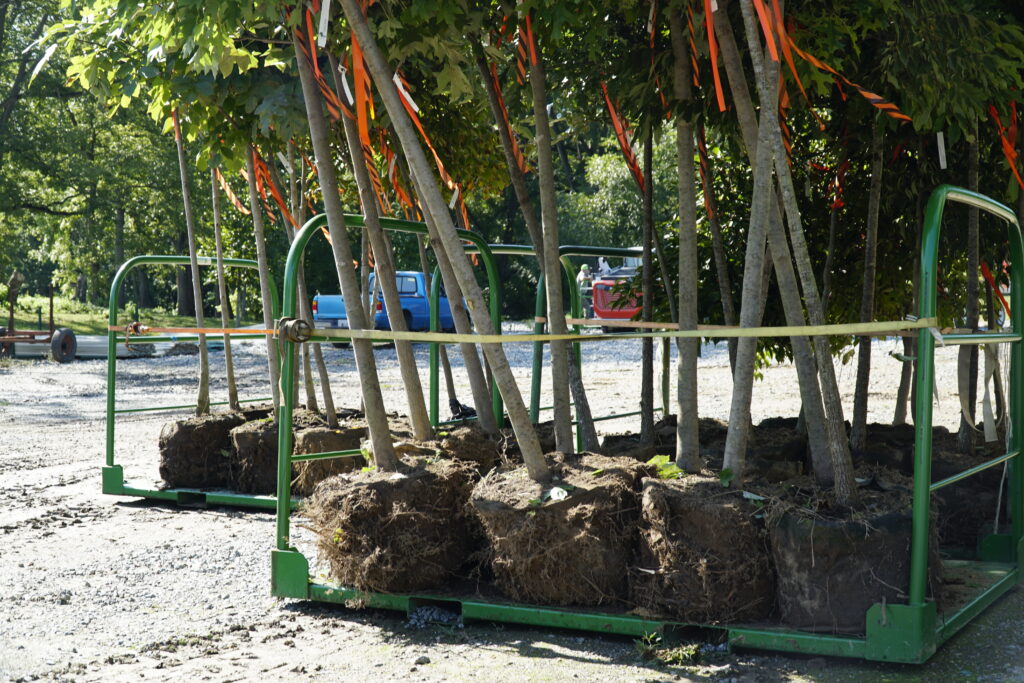
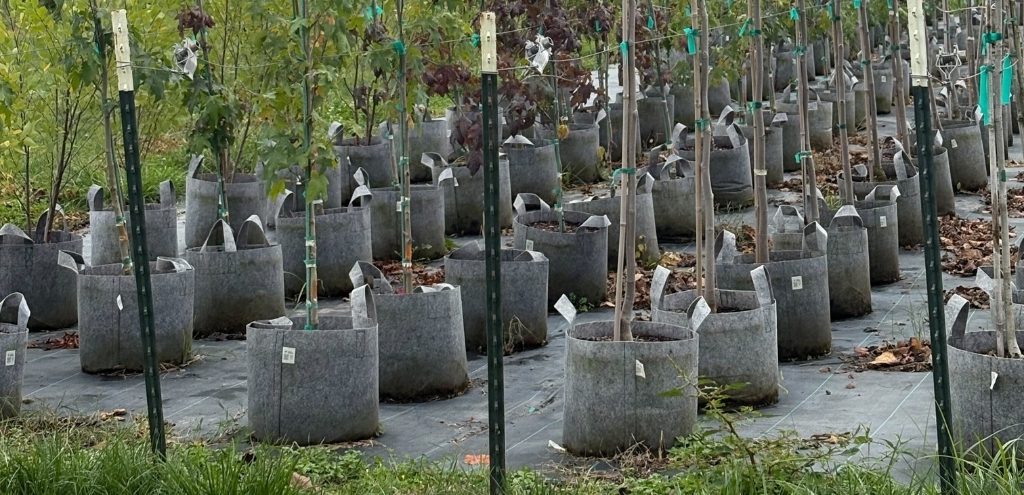
High-Quality Tree Stock
Whether in-ground or in our container yard, all of our trees are grown using natural fiber rootbags, which encourages greater fine root production than traditional balled and burlapped or container-grown trees. More fine roots means better water and nutrient exchange and better chances of survival post-planting, virtually eliminating transplant shock or circling roots. Rootbag-grown trees also use less soil than their balled and burlapped counterparts, reducing environmental impacts and transportation costs, and simplifying planting.
DC State Nursery
Together in partnership with the DC Department of Transportation (DDOT), Casey Tree Farm operates as the DC State Nursery.
Each year, thousands of trees grown at the Farm are harvested and delivered to Washington, DC, to be planted along city streets and in public spaces. Through this collaboration, Casey Trees and DDOT work together on species selection and best practices for growing and planting trees—ensuring healthier, more resilient urban forests in both DC and beyond.

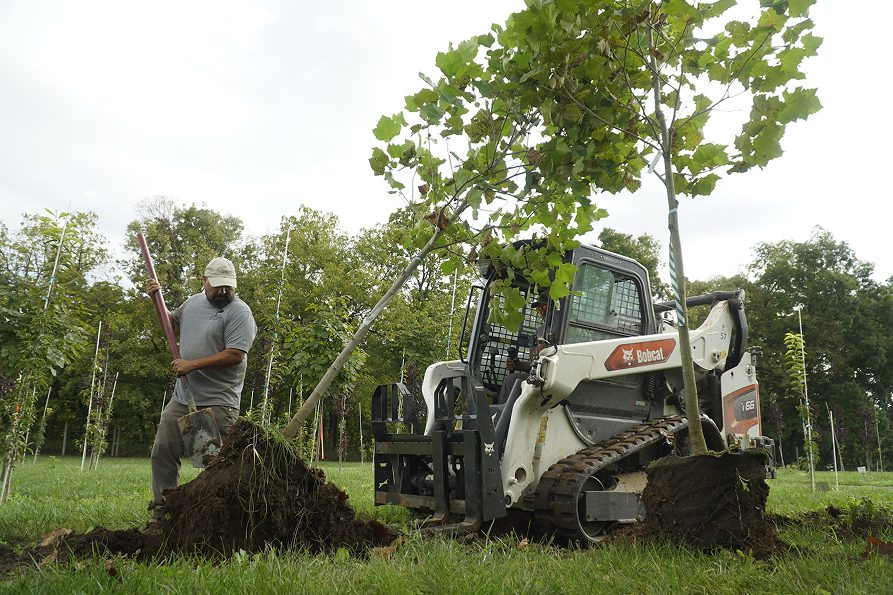
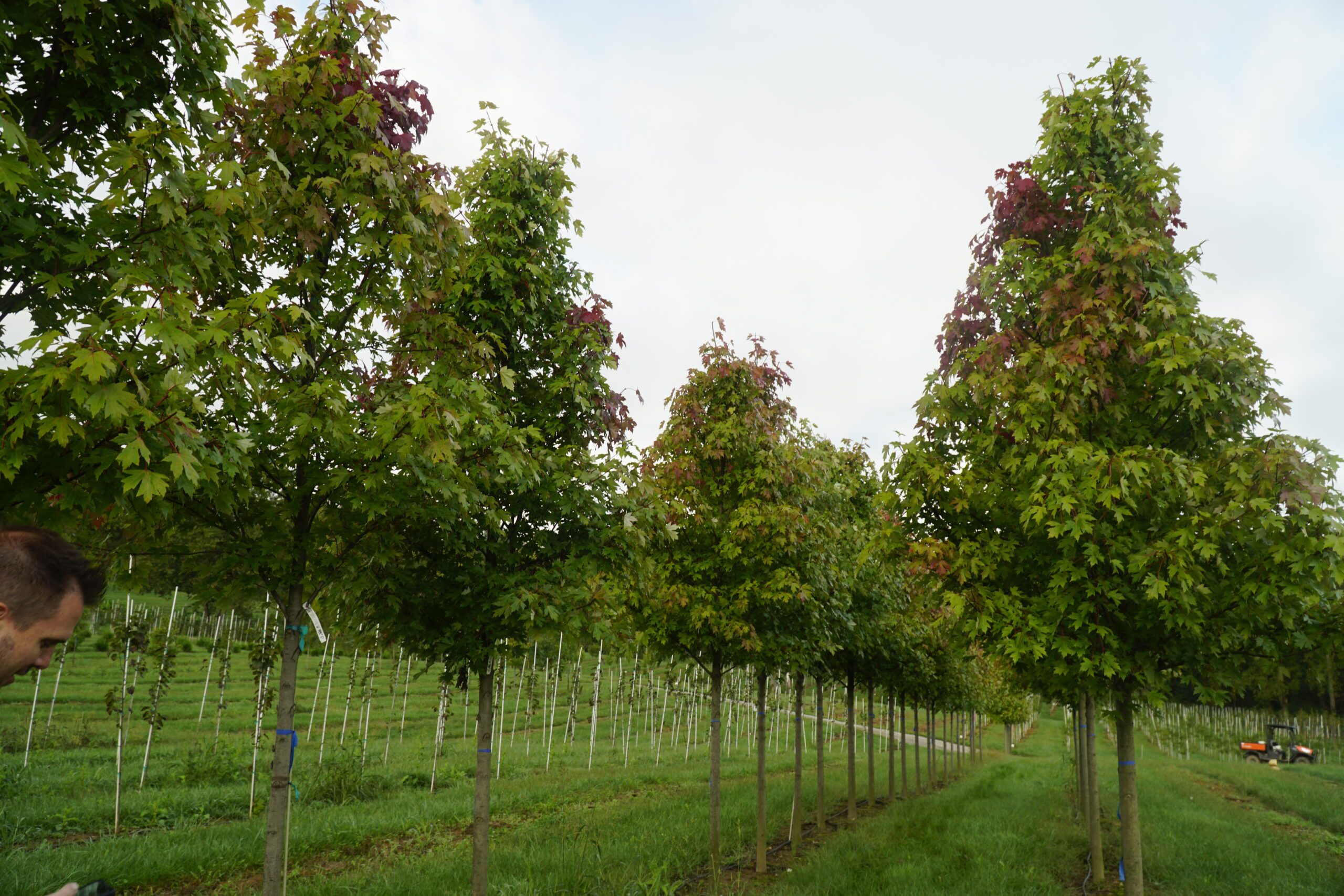
casey Tree Farm – Photo Gallery
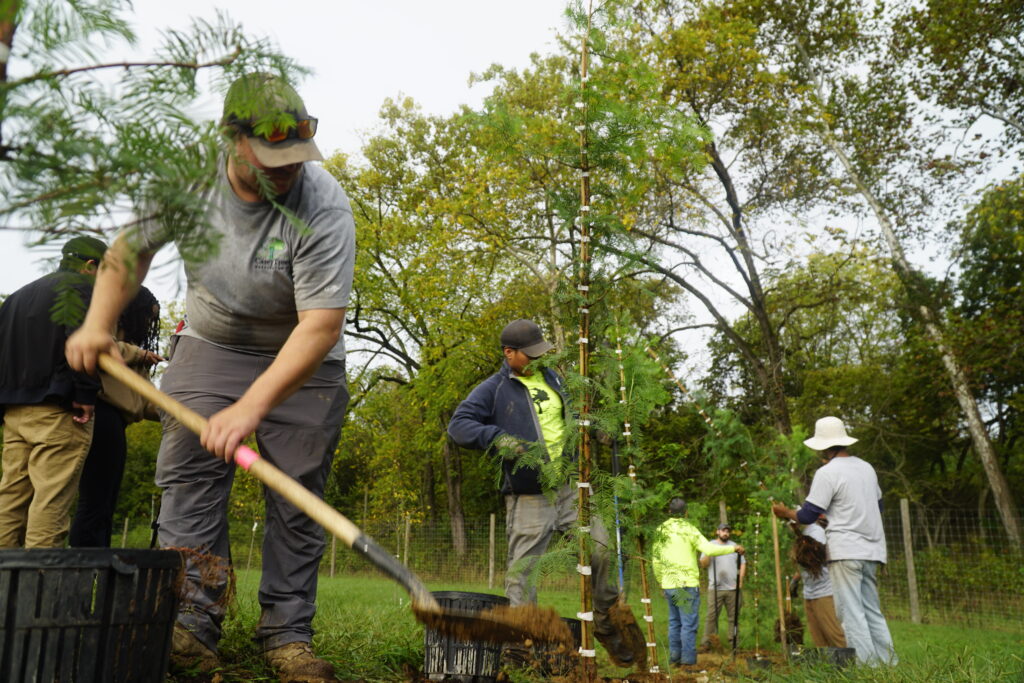
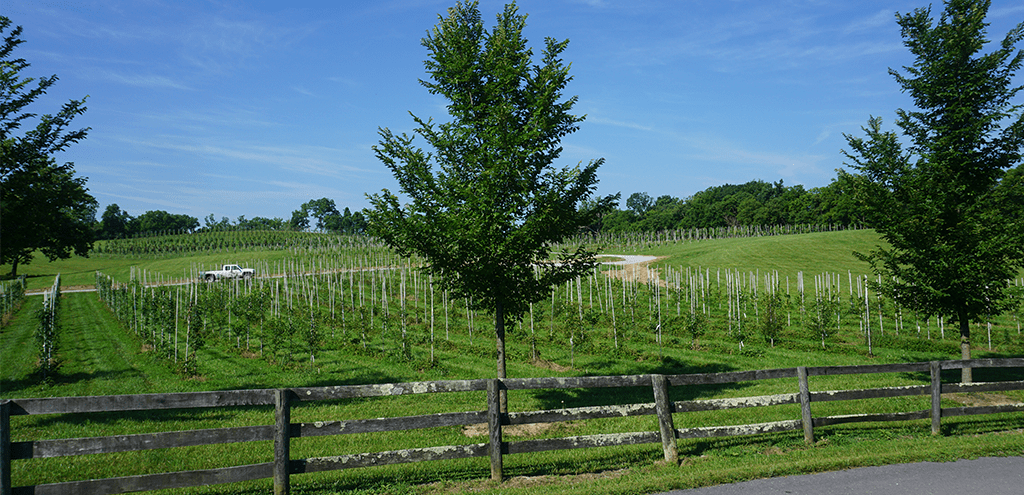
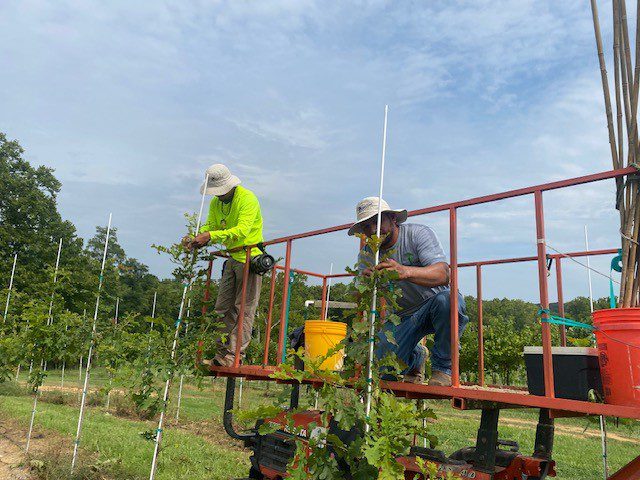
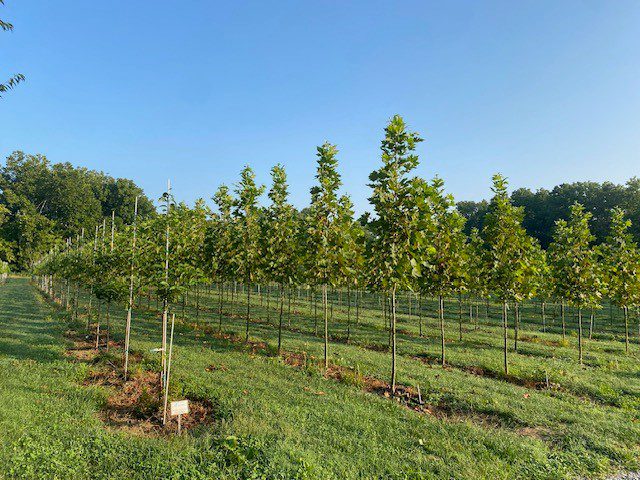
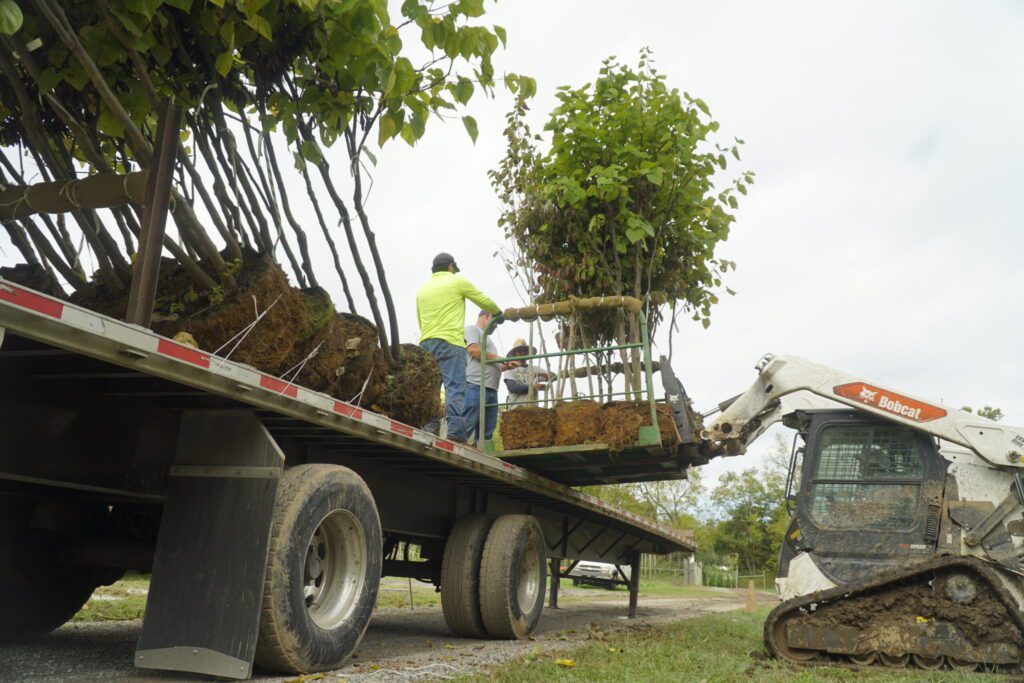
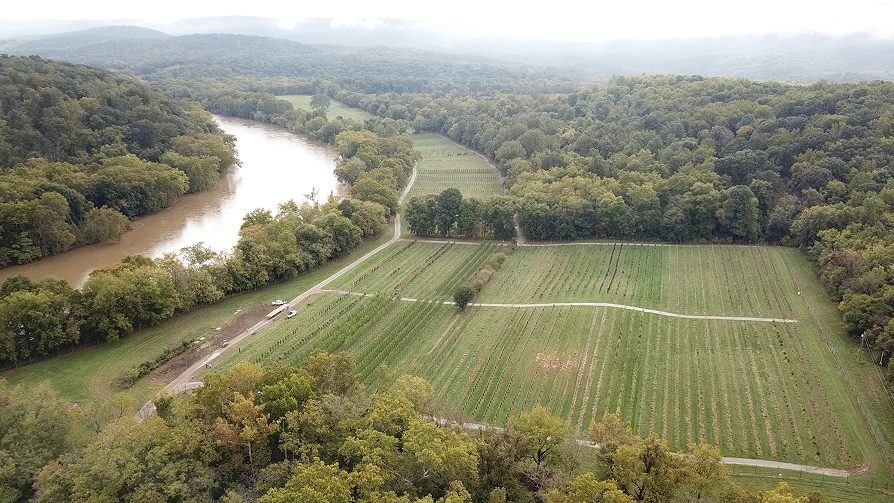
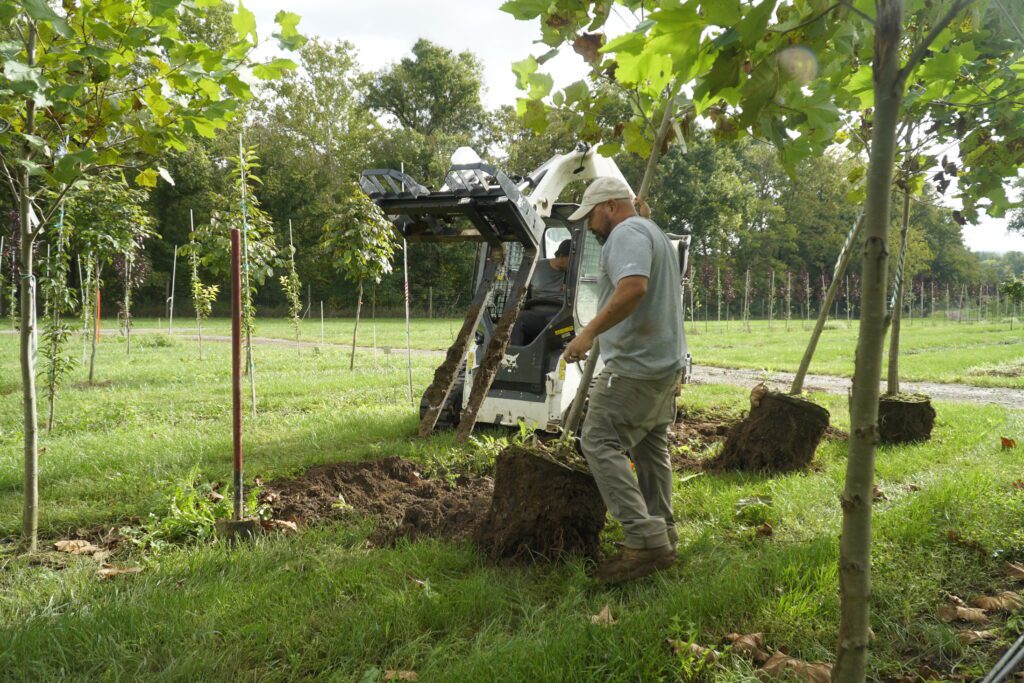
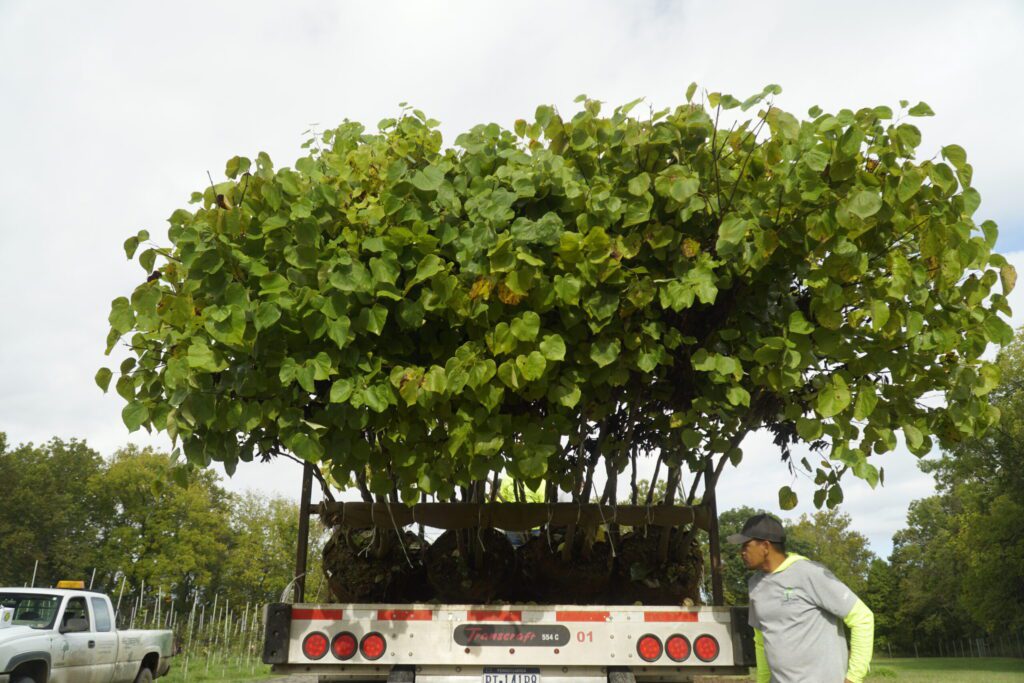
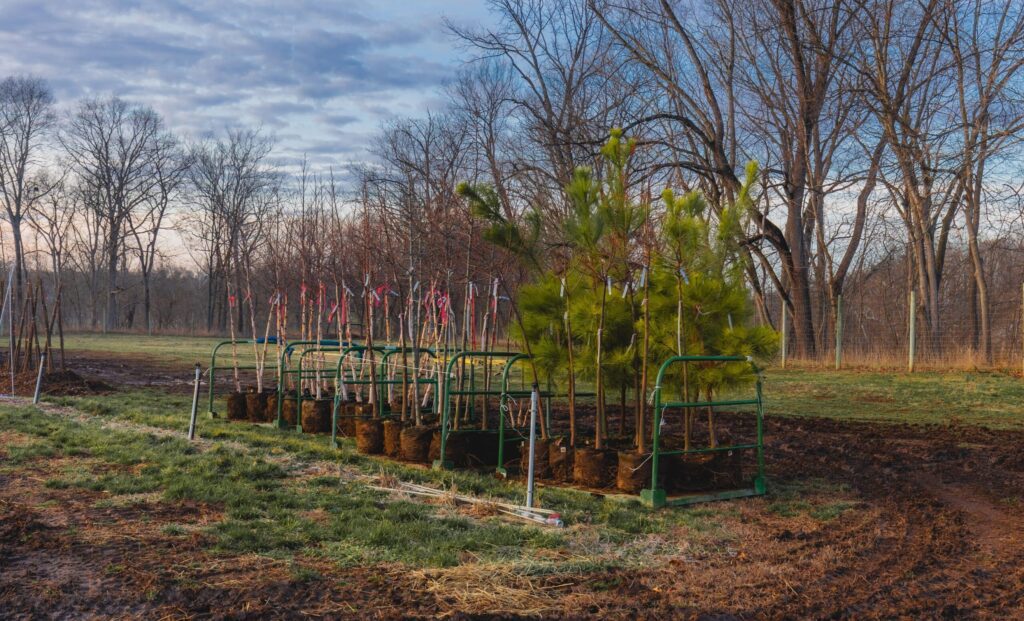
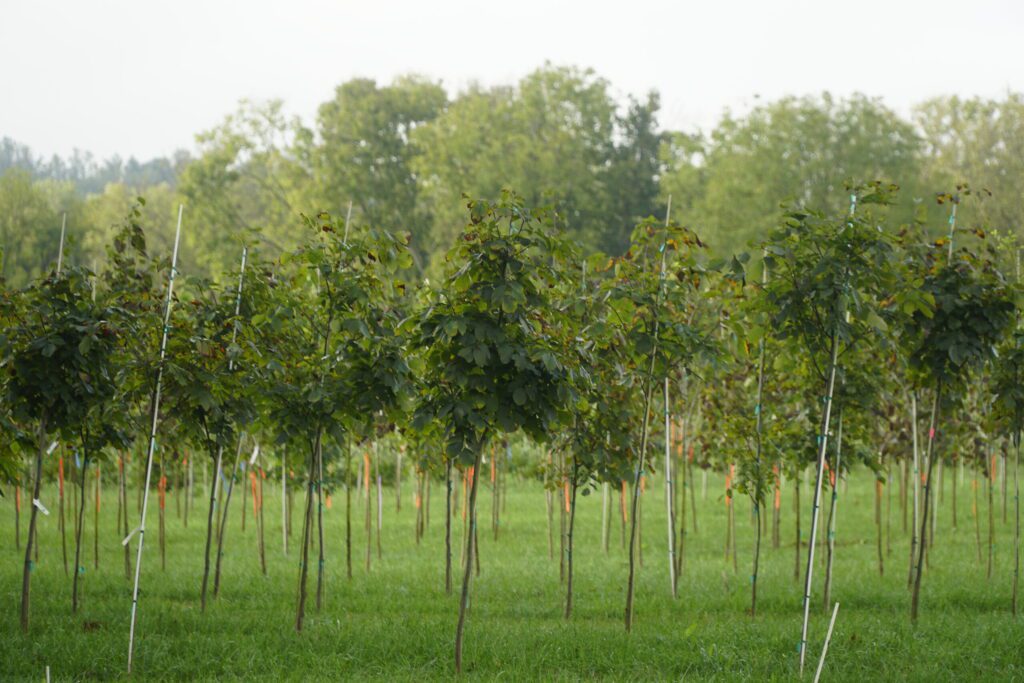
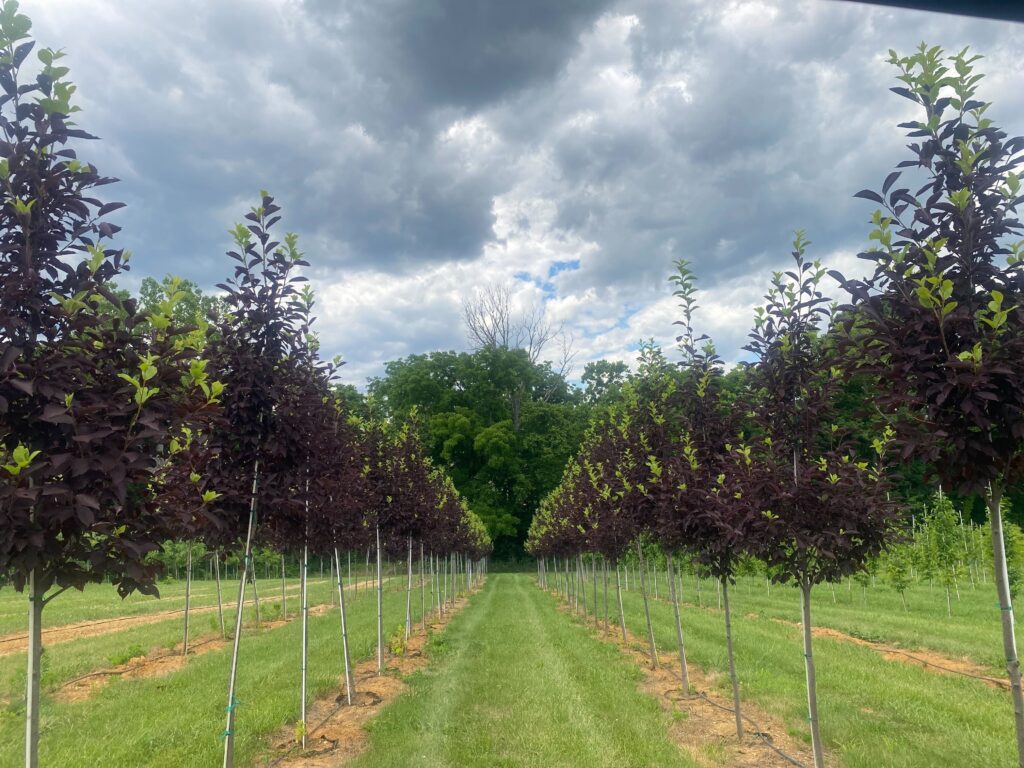
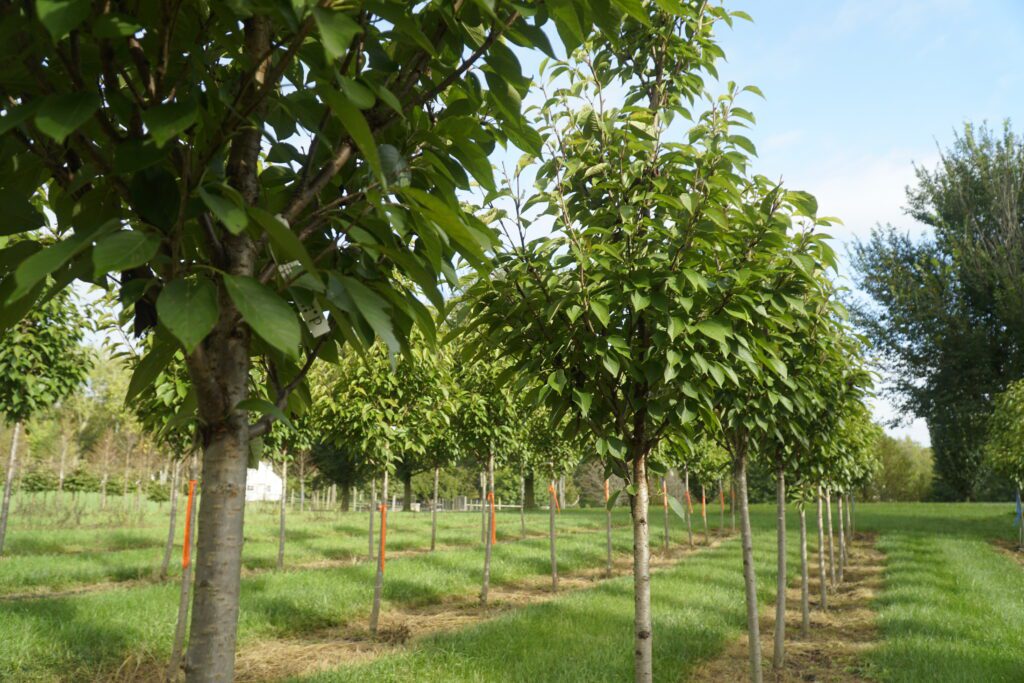
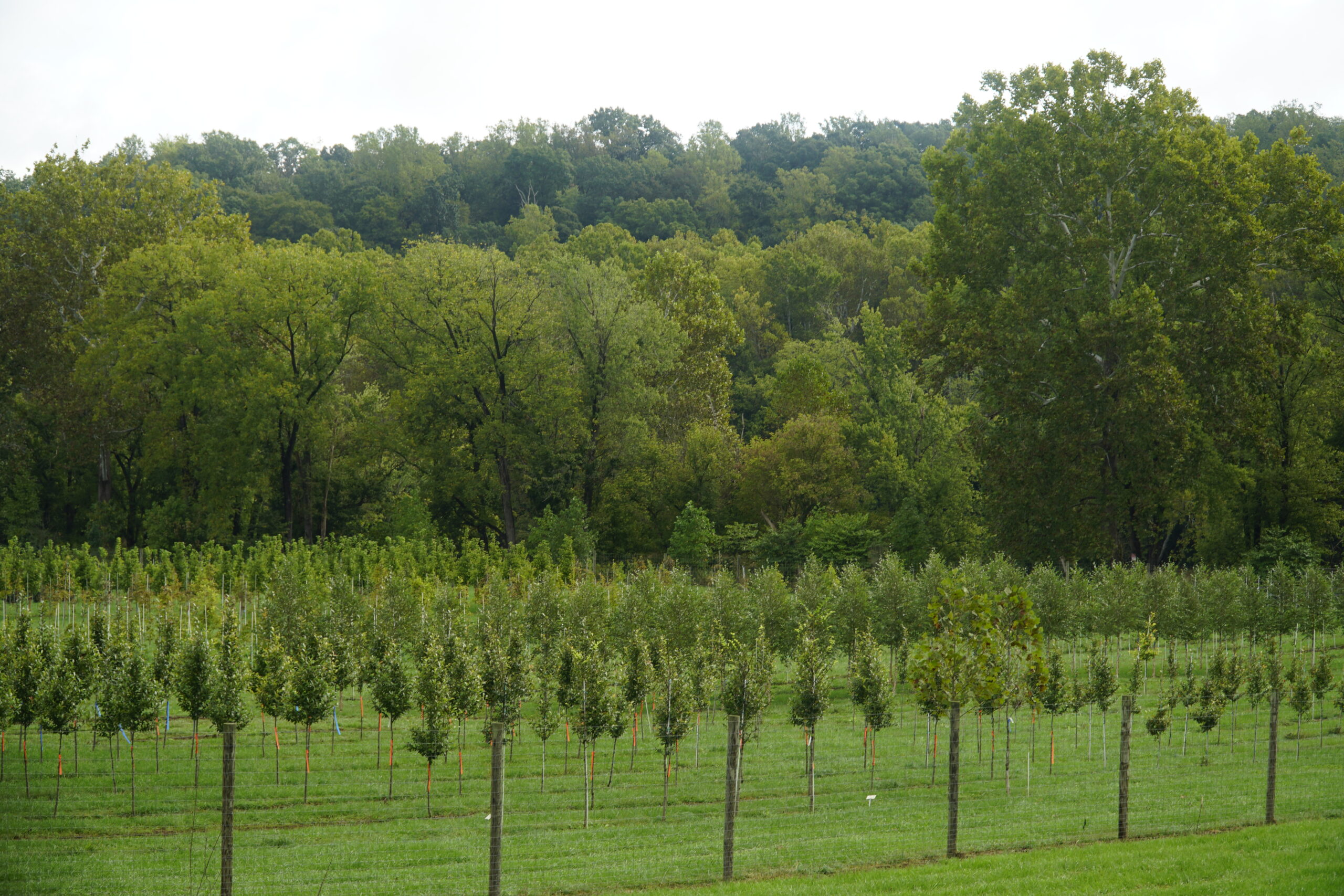
Farm History & HISTORIC Buildings
The Casey Tree Farm has a rich, 225+ year history marked by stewardship, transformation, and a lasting connection to the land.
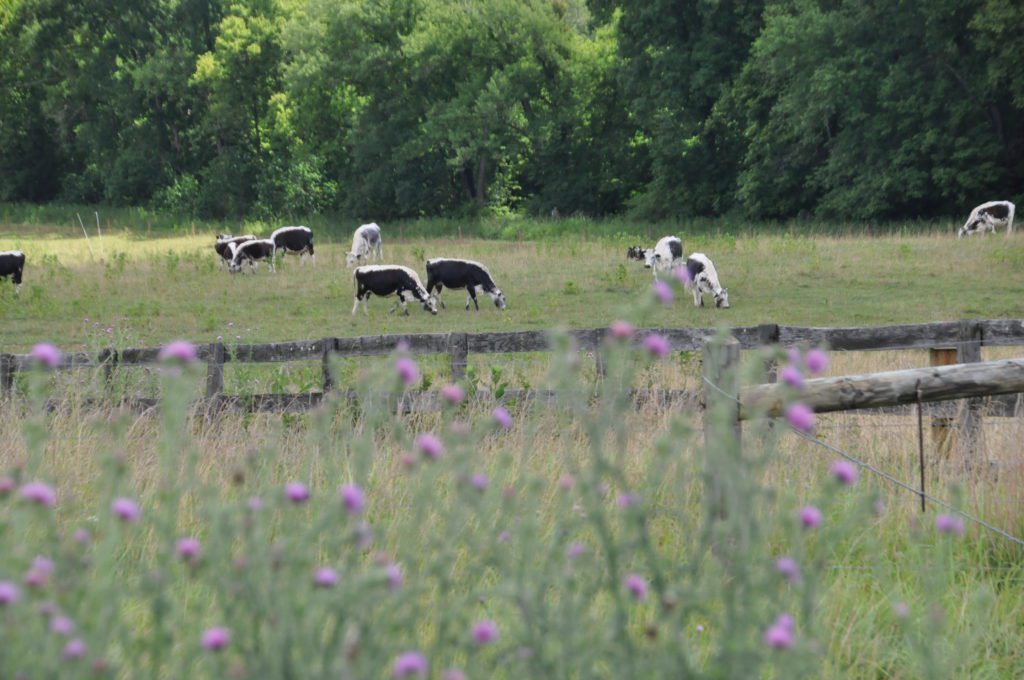
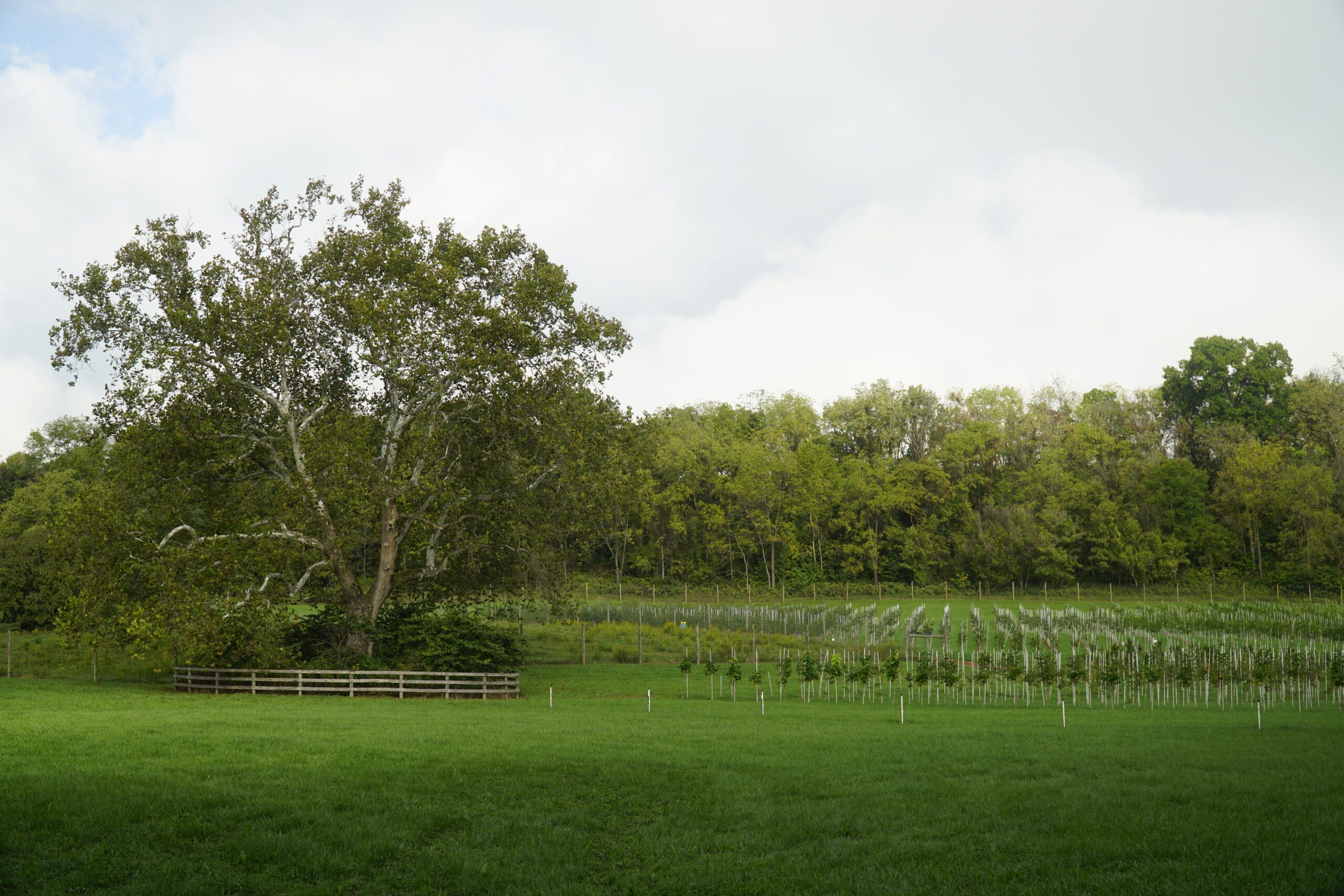
The land on which Casey Tree Farm sits today was once surveyed by a young George Washington, who would later become America’s first president. The property first appears on record in the 1750s, when 3,000+ acres were conveyed to Colonel Fielding Lewis, George Washington’s brother-in-law.
Over time, the larger parcel was split. In 1799, John Holker, a Scottish-born French diplomat, purchased roughly 1,000 acres of the property from George Lewis, the son of Colonel Fielding Lewis. The estate’s original name, “Springsbury,” reflected its proximity to natural springs, where Holker built a Federal-style house and operated a mill and distillery.
The property exchanged ownership a few times after Holker’s death. Then, in 1935, Marie and George Greenhalgh purchased the property and expanded the house into a spacious residence, with designs by the Boston-based firm of Perry, Shaw & Hepburn, best known for its work in Colonial Williamsburg. They also added expansive gardens, the road layout, and many stone-wall features on the farm, all designed by one of America’s most prominent women landscape architects, Ellen Biddle Shipman. Today, while this house is vacant and no longer livable, we have stabilized the home to ensure it will continue standing for decades to come.
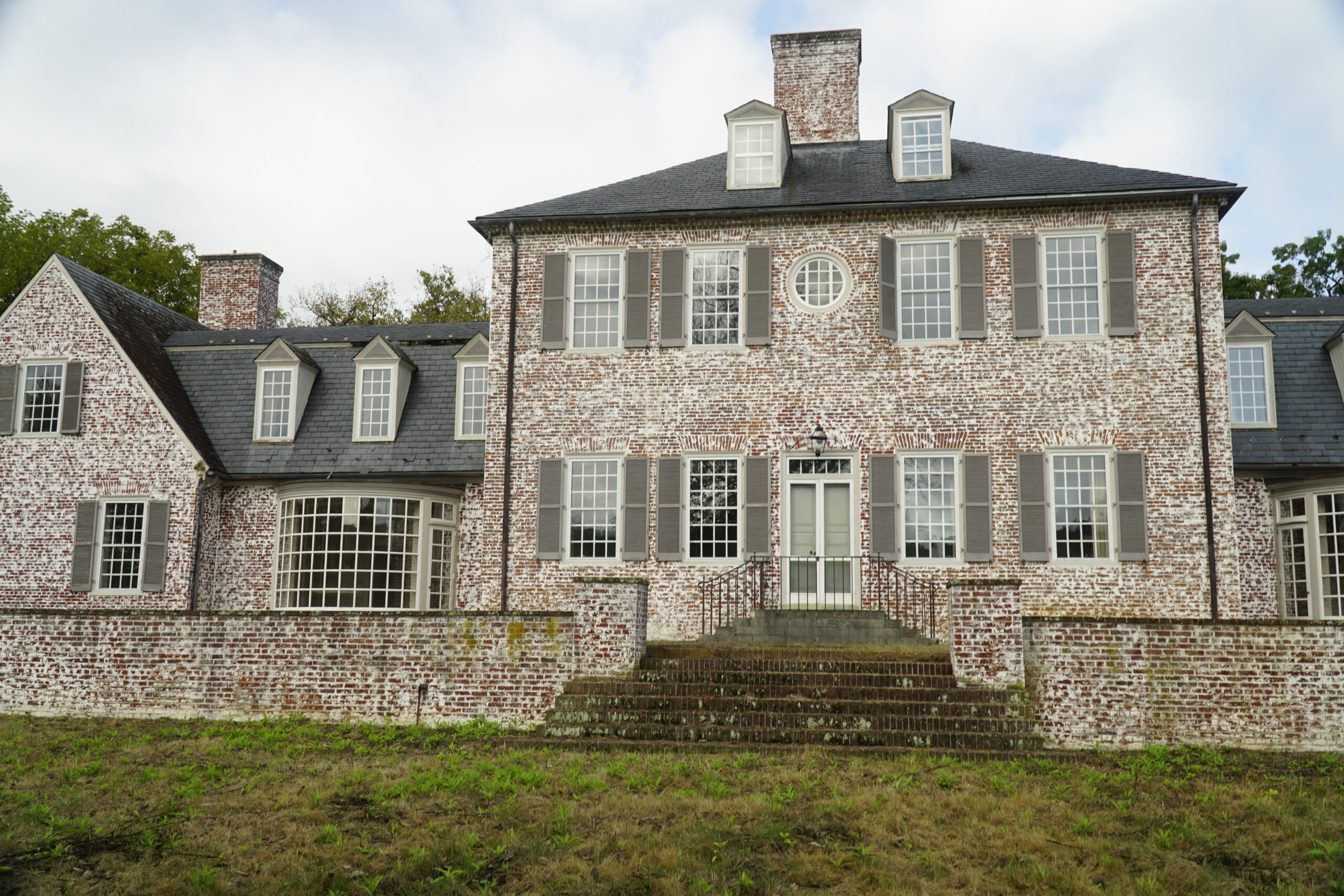
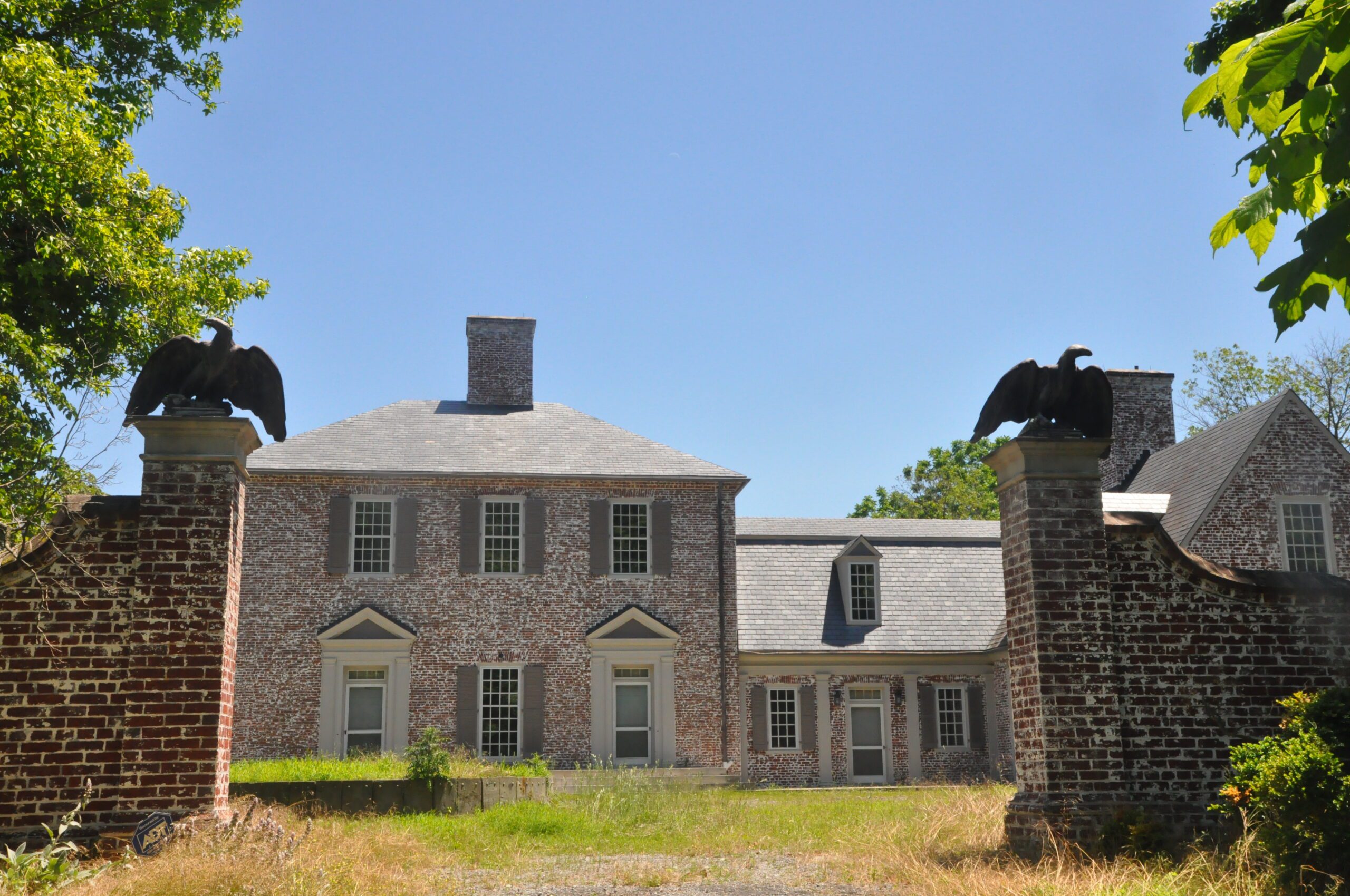
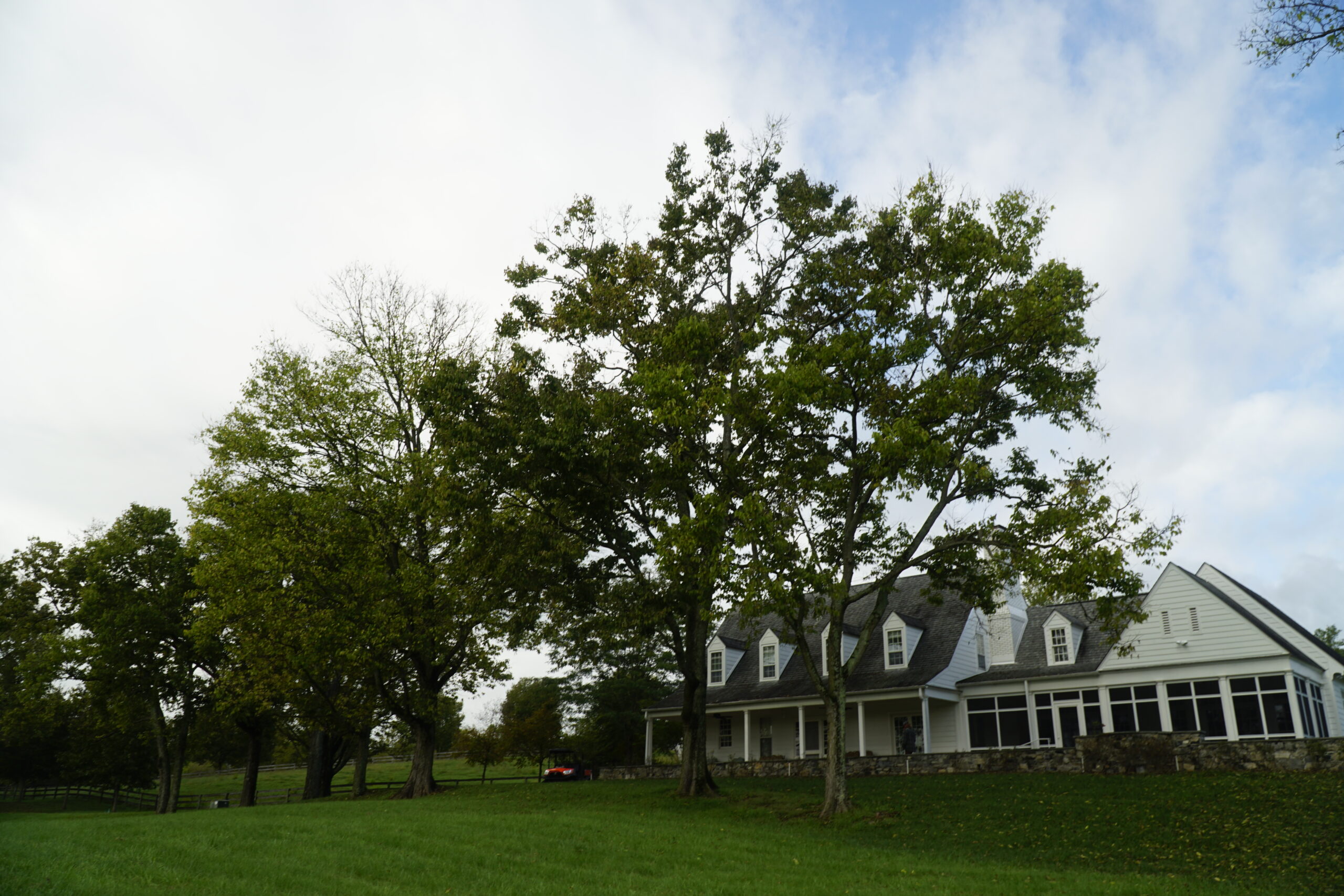
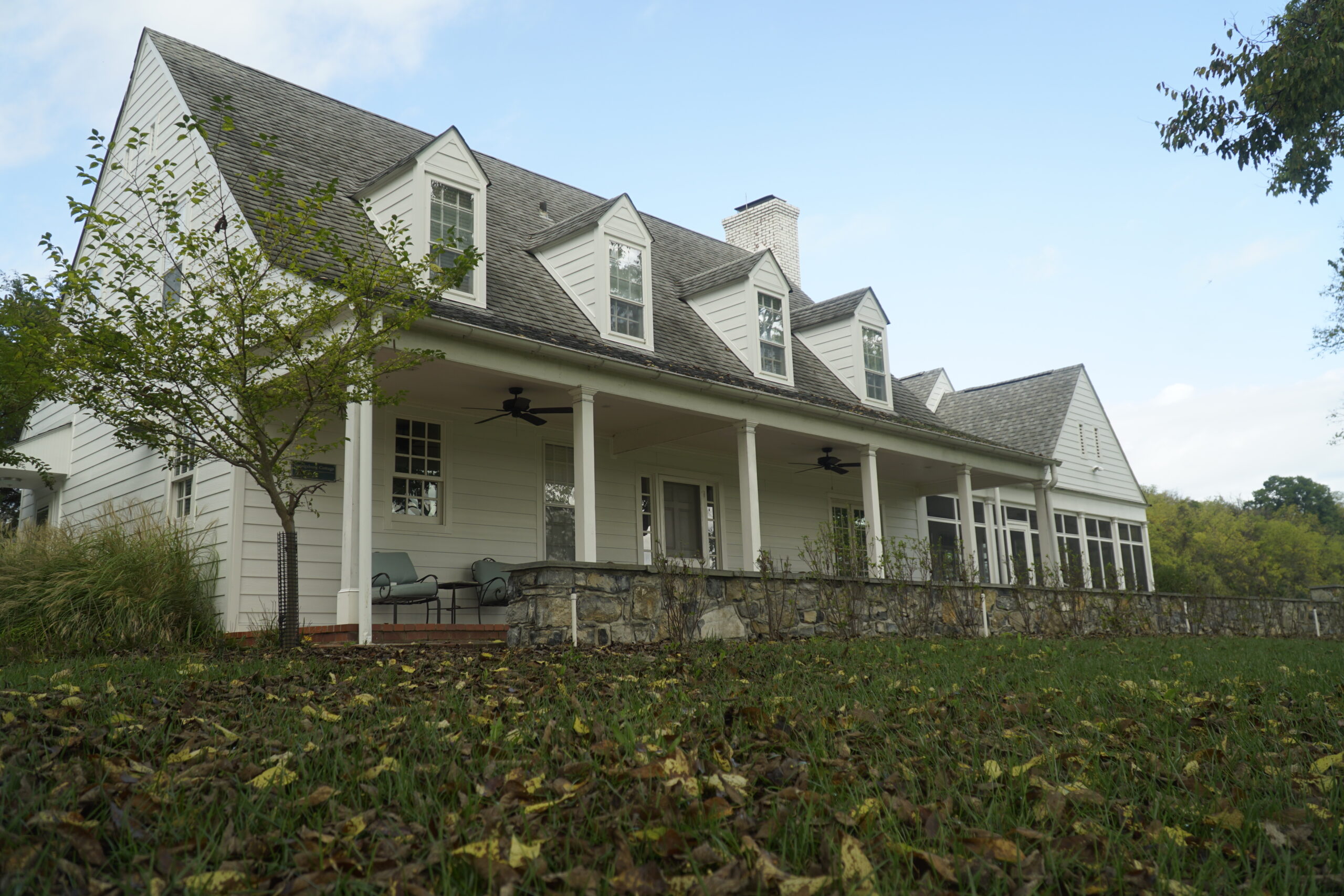
The Greenhalghs also built a few outbuildings, which were typically used during this period to house staff or serve as facilities related to estate maintenance or equestrian activities. One of these buildings has been updated and is now known as “Springsbury Cottage”, which serves as a meeting space for small events and gatherings at the farm.
The Main Stable, with more than 25 stalls, was used by the Greenhalghs to board their show horses. The original barn, also built in the late 1700’s, was expanded at the same time.
Eugene and Betty Casey purchased Springsbury and neighboring parcels in 1958, and used the house as a summer and vacation home. They stewarded the land and maintained the integrity of the existing structures and farm land. Mrs. Casey continued to preserve the property and, in 2008, gifted it to Casey Trees to begin use as a working tree farm.
